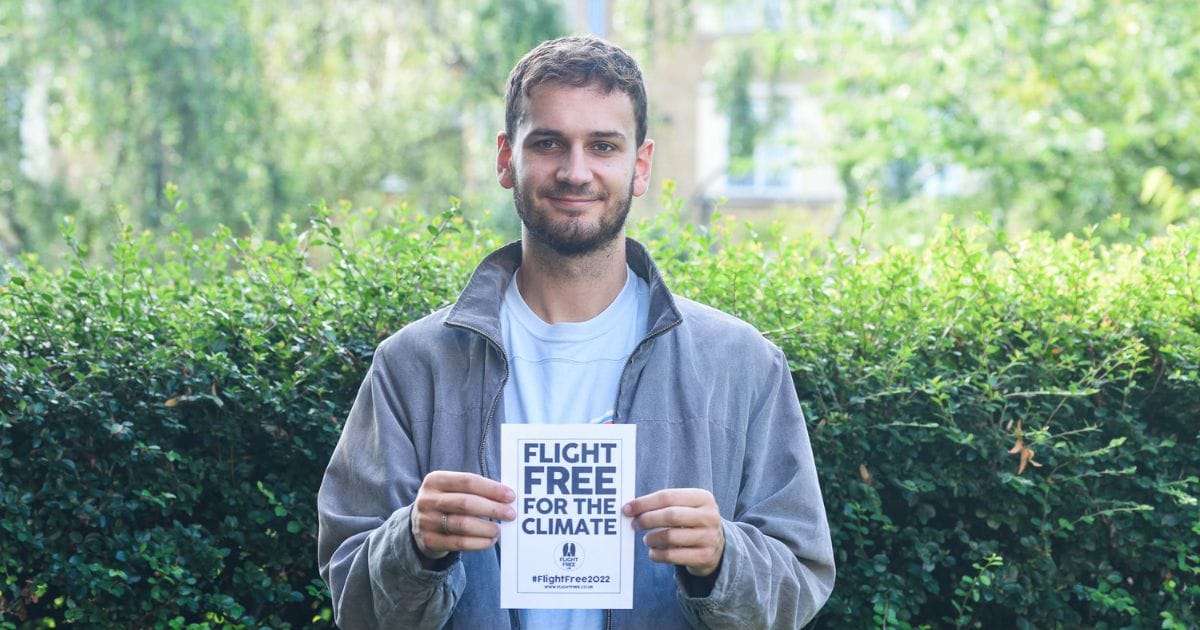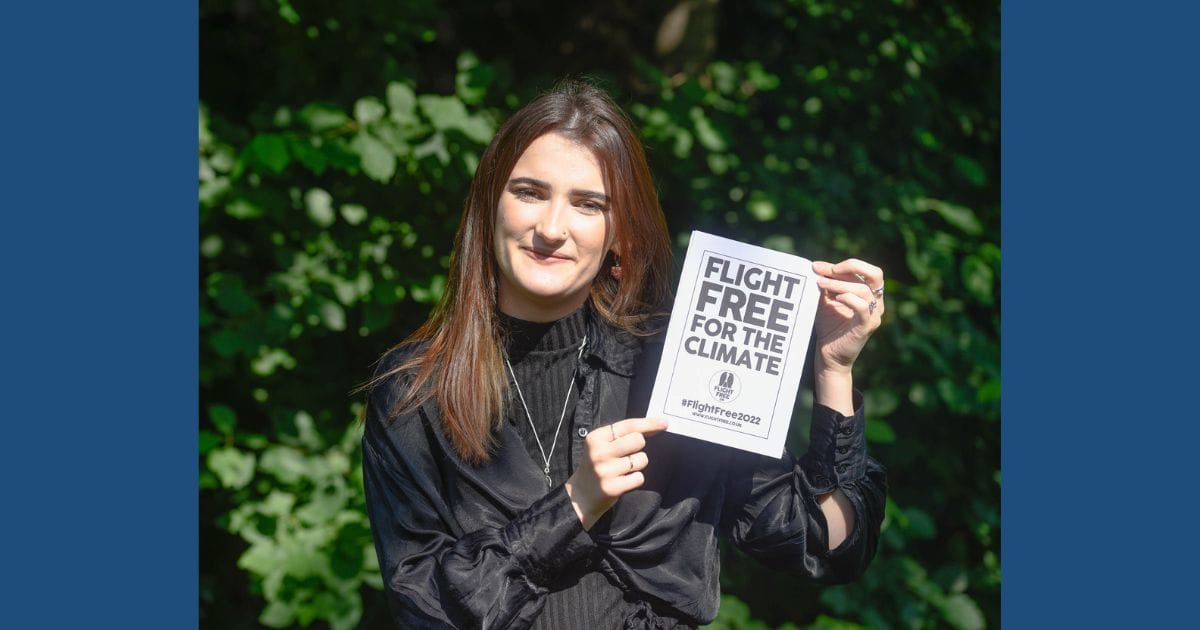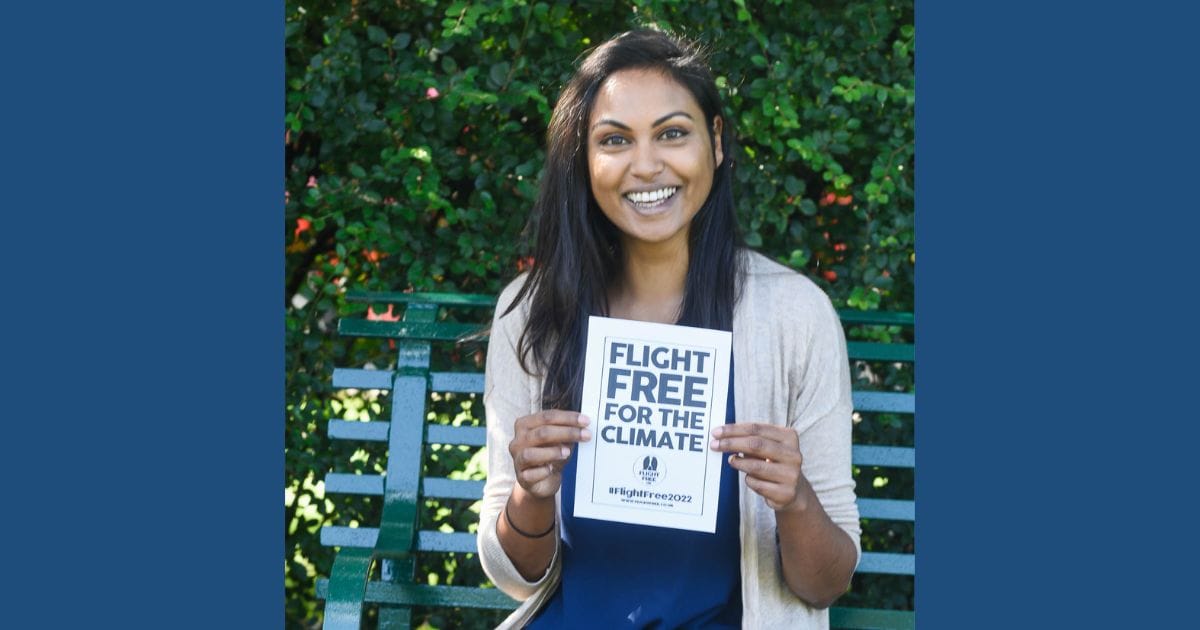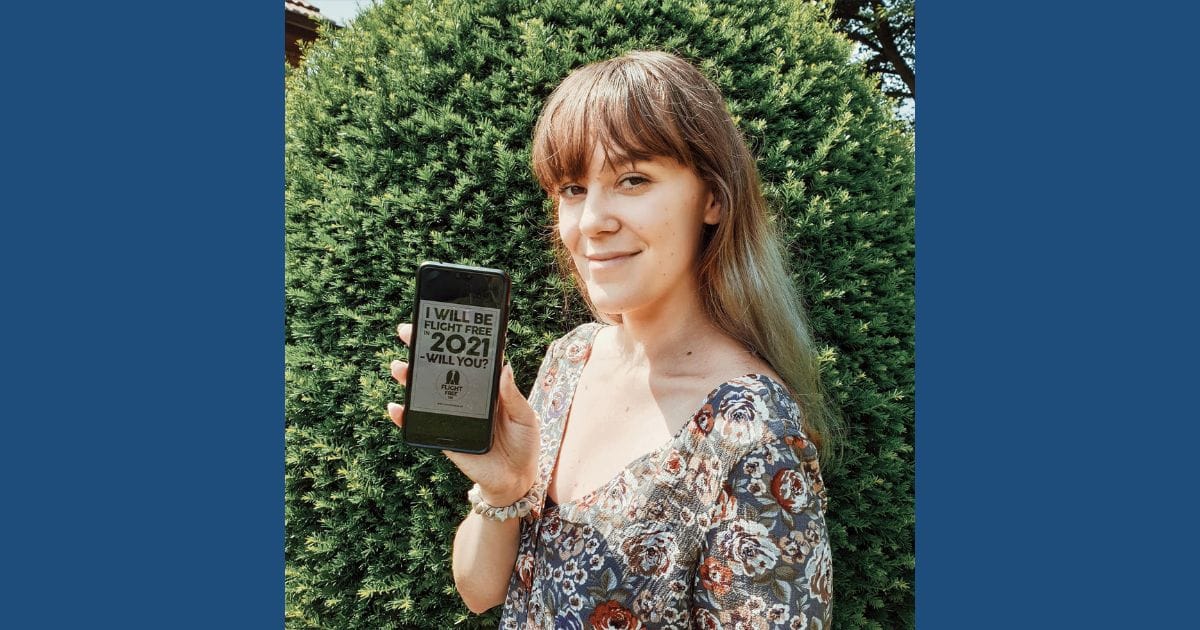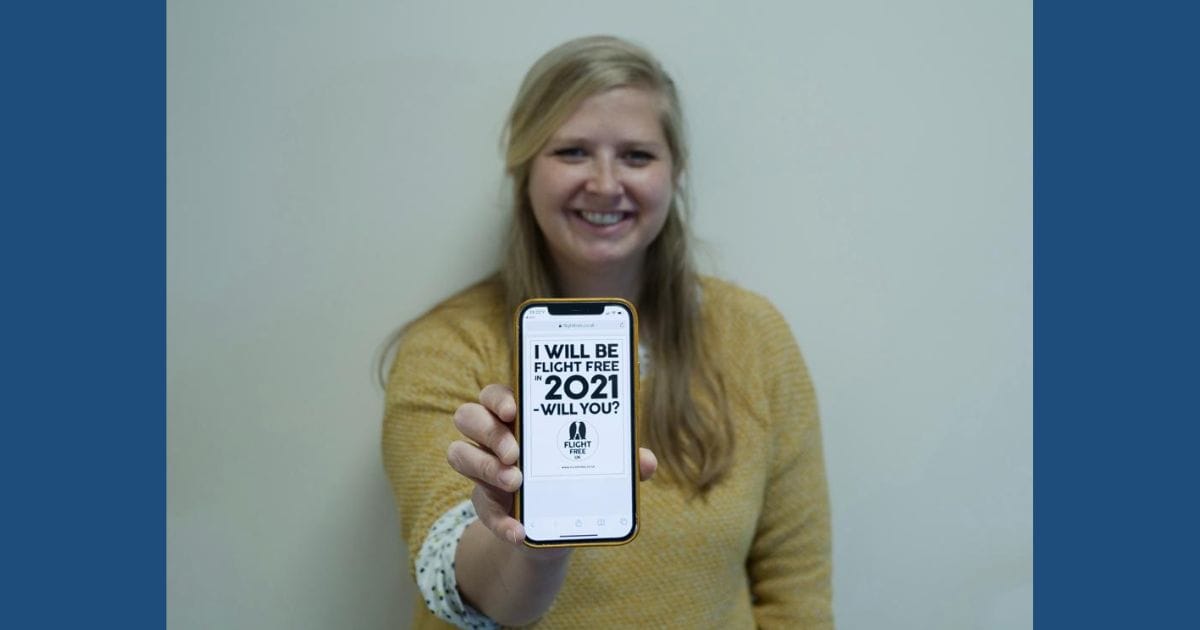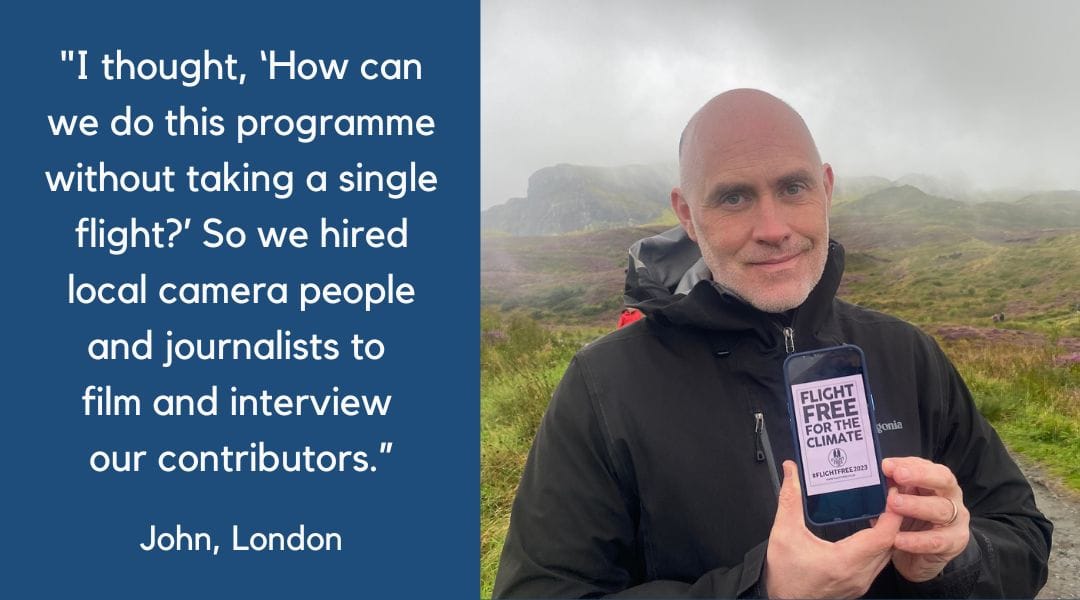
In 2019, the BBC’s flagship news programme, Today, produced a lengthy profile of Greta Thunberg.
The interview was sympathetic – but there was a problem. The presenter had flown to Stockholm to talk to her.
The programme’s editor shrugged: “It felt awkward but we did not have the time for trains or boats.”
I’ve worked in factual television for around two decades. I have taken my share (and many other people’s share) of flights around the world. I recognise the sentiment of the Today editor – “we did not have time.”
We live in an age when ‘time is money’ across all industries. Why spend all that effort on getting the presenter on trains for two days when you can just fly her there in a few hours?
Except now, of course, we are beginning to appreciate the actual cost of all those cheap flights on our planet, and once you start from that position, you realise there are other options available.
We are beginning to appreciate the actual cost of all those cheap flights on our planet, and once you start from that position, you realise there are other options available.
The presenter could have spoken to Greta Thunberg over a live link, or could have taken the train journey and made a valuable point about the lack of rail infrastructure.
There are always choices. There is always time to do the right thing.
At the beginning of 2020, I made a documentary on the history of the African novel for BBC Four. The ‘old me’ would’ve started looking into visas for countries like Nigeria and Kenya for me and my camera crew.
But, inspired by many trailblazers in the industry and organisations like Flight Free UK, I thought, ‘How can we do this programme without taking a single flight?’
Rather than a hindrance, this early decision was an inspiration.
This was a programme about the many brilliant writers of the African continent – so why not build the creativity of African people into the programme itself?
So instead of flying a crew hundreds of miles, we hired local camera people and journalists to film and interview our contributors. We made contact with organisations like the BBC office in Nigeria, and quickly found a brilliant interviewer in Lagos who was actually in a book group with one of our main contributors! We benefited hugely from the ‘on the ground’ knowledge of these brilliant creatives, who could find the best locations for filming.
Instead of flying a crew hundreds of miles, we hired local camera people and journalists to film and interview our contributors.
There is a flourishing TV and movie industry in many countries in Africa, especially Nigeria. Thinking about the ‘old days’, it seems strange not to utilise local talent in favour of flying over western crews.
Using local talent freed up money to spend on other aspects of the production, such as archive, photographs and drama sequences.
It was so ingrained in the production, when we spotted that there was an African literature conference at the Hague in the Netherlands, the only choice was of course to get the train there, rather than cumbersome flights. No checking in! The joy of travelling across the Dutch landscape!
I was lucky to have had a highly supportive organisation who backed my goals. One thing I learned was to always frame the conversations in terms of positives, not negatives. Rather than saying, ‘We should not fly,’ the dialogue was always, ‘How can we use the best talent? How can we best spend a finite budget to get the most money on screen?’
The television industry is now taking more heed of its environmental footprint, with schemes like Albert providing training and online tools to work out how much your TV production affects the environment – which also includes flights (see if you can spot an Albert logo at the end of a programme). But ultimately, these decisions are made by programme makers.
